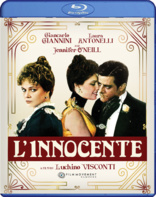L' Innocente Blu-ray Movie
HomeL' Innocente Blu-ray Movie 
The InnocentFilm Movement | 1976 | 129 min | Rated R | Jul 14, 2020
Movie rating
7.1 | / 10 |
Blu-ray rating
| Users | 0.0 | |
| Reviewer | 4.0 | |
| Overall | 4.0 |
Overview
L' Innocente (1976)
Tullio Hermil is a chauvinist aristocrat who flaunts his mistress to his wife, but when he believes she has been unfaithful he becomes enamored of her again.
Starring: Giancarlo Giannini, Laura Antonelli, Jennifer O'Neill (I), Rina Morelli, Massimo GirottiDirector: Luchino Visconti
| Foreign | Uncertain |
| Drama | Uncertain |
| Romance | Uncertain |
Specifications
Video
Video codec: MPEG-4 AVC
Video resolution: 1080p
Aspect ratio: 2.35:1
Original aspect ratio: 2.39:1
Audio
Italian: LPCM Mono (48kHz, 16-bit)
Subtitles
English
Discs
Blu-ray Disc
Single disc (1 BD)
Playback
Region free
Review
Rating summary
| Movie | 4.0 | |
| Video | 4.0 | |
| Audio | 3.5 | |
| Extras | 1.0 | |
| Overall | 4.0 |
L' Innocente Blu-ray Movie Review
Reviewed by Jeffrey Kauffman July 10, 2020According to sometimes questionable online translation resources, Italians might refer to the phenomenon the French call a ménage à trois as a sesso a tres, and in that regard it’s perhaps salient if also slightly comical to realize that the French word ménage can be typically translated as “housework”, while the Italian sesso is a bit more overt, meaning “sex”. However you define it in whatever language you choose, there’s a threesome of sorts at the heart of Luchino Visconti’s last film, L’Innocente, and, while not taking up a bunch of actual screen time other than some recurrent allusions, there’s actually a fourth player in this tale of an unhappy marriage between a 19th century aristocrat named Tullio Hermil (Giancarlo Giannini) and his wife Giuliana (Laura Antonelli). Tullio is a product of his era, and is unabashedly chauvinistic, even priggish, and isn’t especially shy about hiding what turns out to be an affair with a countess named Teresa Raffo (Jennifer O’Neill, looking lovely but really badly dubbed into Italian). Visconti, an auteur whose very name hints at his own noble ancestry (he was indeed a Count), revisits some themes and aspects of his previous work here in The Innocent, with an incisive portrait of an indolent “ruling class” whose personal lives seem to be culled from some overwrought soap opera. Visconti also doesn’t shirk from a number of other issues, including a certain undeniable hypocrisy that accrues around affairs, especially when contrasting reactions to either a husband or a wife dallying, and he also mixes in a bit of religious subtext here when Giuliana, who does indeed stray from her marital vows, finds herself pregnant by her lover, and the supposedly atheistic Tullio urges her (a devout Catholic) to abort the baby.
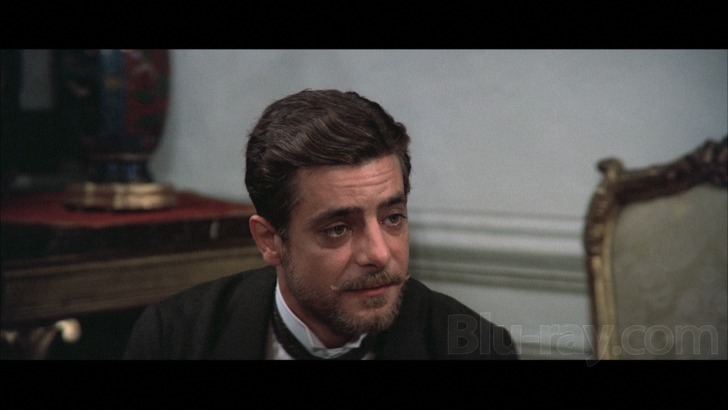
What can be kind of fascinating for some lovers of international film in looking at the complete output of Visconti over the course of several decades is trying to reconcile some of his neorealist tendencies in films like Ossessione with what might termed certain operatic proclivities in later productions, including L’Innocente. But for anyone caring to look past convenient categorical pigeonholes, there was an undeniable “operatic” aspect to even some of Visconti’s early pieces which are at least at times stuffed into that neorealist genre. The “realism” of films like The Leopard (a film which has certain similarities to this one) might seem more artificial to modern day eyes, and yet the elegant stasis (for want of a better descriptor) that Visconti exploits in that film, and indeed in this one, would seem to be an accurate accounting of the nineteenth century lives he’s exploring.
In that regard, while the “elegant stasis” might be front and center in Visconti’s presentational offerings, there is subtext galore in his films dealing with this time period and this class of people that suggests there are pretty profound rumblings just beneath the surface that may portend epochal upheaval. In this particular instance, while those rumblings may ripple out to society at large, they don’t initially seem to be affecting Tullio or the women in his life, since they are all somewhat self obsessed and more concerned with personal gratification. What Visconti also seems to be detailing in L’Innocente is a society that may gossip freely about (or at least look askance at) perceived indiscretions, but which is otherwise perfectly content to just let things play out, perhaps because that in and of itself gives more leeway to gossip.
And it's in the personal dynamic between Tullio, Giuliana and Teresa that L'Innocente finds its undeniably potent, if slightly dissociative, content. (Giuliana's lover, a novelist named Filippo D’Arborio, portrayed by Marc Porel, is pretty much consigned to the sidelines, although his relationship is in some ways the linchpin of the entire story.) While Tullio engages in some amorous heat with Teresa, almost willfully flaunting the relationship to Giuliana, the tables are turned when Giuliana starts to find a little extramarital happiness herself with Filippo. Suddenly finding himself to be the “third wheel” in a Giuliana-Filippo tryst, Tullio attempts to rekindle the dying embers of his marital fire, but Giuliana’s pregnancy throws yet another curve ball into the mix. All of this plays out in a world where sumptuously dressed patricians attend “salons” where less than gifted musicians plow through various classics, as the assembled audiences pose as if they’re part of some tableau that’s being painted. There’s the same kind of weird dichotomy at play in this film with almost out of control passions running rampant beneath an apparently immobile surface that informs some of Visconti’s other work (again, notably The Leopard).
There are some curious refractions between this film and Martin Scorsese's at least somewhat similarly named The Age of Innocence, though fans will of course know that the Scorsese film was based on a novel by Edith Wharton which appeared in 1920 and ended up making Wharton the first female recipient of a Pulitzer Prize. That said, I'm wondering if Wharton perhaps knew of the source novel that inspired this film, Gabriele D'Annunzio's 1893 L'Innocente, which was translated into English as The Intruder. A cursory internet search didn't turn up anything authoritative in this regard (that I could find, anyway), other than a perhaps tantalizing clue that Henry James once sent Wharton a thank you note for sending him some of D'Annunzio's work. I haven't made it through all of the supplements on Criterion's release of the Scorsese film, so maybe this connection is mentioned overtly somewhere (I'd love to know if so, so if anyone has made it through all of the supplements and remembers such a reference, private message me), but Svet's review of the Criterion release specifically mentions that Scorsese cites The Leopard (if not this film) as one of his inspirations.
L' Innocente Blu-ray Movie, Video Quality 
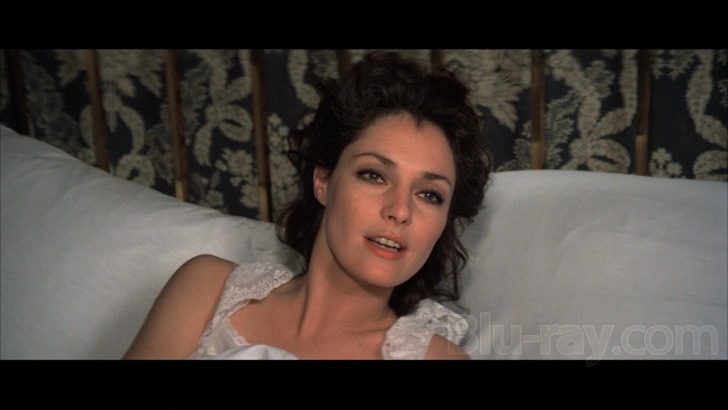
L'Innocente is presented on Blu-ray courtesy of Film Movement Classics, an imprint of Film Movement, with an AVC encoded 1080p transfer in 2.35:1. Once again, Film Movement's booklet contains only a generic "new digital restoration" descriptor without any other information. From a damage standpoint, this looks considerably better than a DVD release from what was called Koch Lorber back in the "olden" days, though even that wasn't that littered with age related wear and tear. Color temperature is also more consistent, though that said, there are still some variances at play. When things look warm, as in screenshot 4, colors, especially primaries, really reverberate quite strongly. There are sudden shifts to a cooler look, though, at times for just a moment in scenes that otherwise look at least relatively better. In these moments there can be a slightly bluish undertone to things as well as a slightly grittier and less well detailed appearance (see screenshot 8). The film's production design is amazing, and some of the fine detail on fabrics in both costumes and things like upholstery or even wallpaper resolve very well. My score is 4.25.
L' Innocente Blu-ray Movie, Audio Quality 
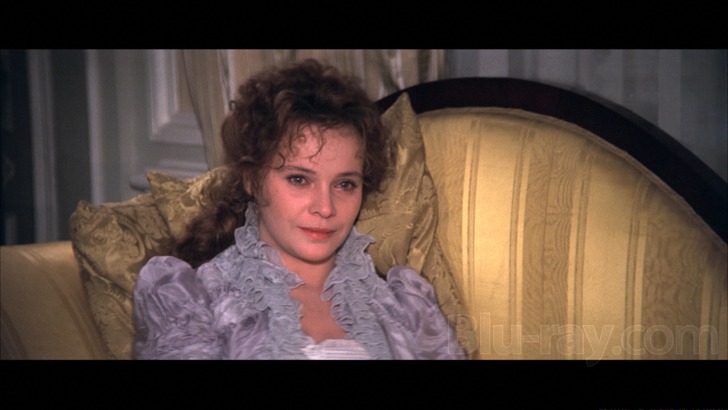
L'Innocente features an LPCM 2.0 Mono track in the original Italian (with optional English subtitles). While there's not a whale of a lot to complain about with regard to the actual track, other than a slightly narrow, thin quality to some of the dialogue, this film is perhaps hampered more than even other Italian films due to the longstanding Italian tradition of post looping everything. It's of course most noticeable with O'Neill, who was more than obviously speaking English during her takes, and who is dubbed just ridiculously badly hear, not just in terms of a voice that doesn't seem to suit her (which admittedly may be biased based on what her real voice sounds like), but also in terms of just almost comically bad sync issues, sometimes where either the dialogue will continue after her lip movements have stopped, or just as regularly, vice versa. Even the post looping of the actors presumably speaking Italian in the film seems haphazard at times. It's a shame, at least for those who, like frankly I do, tend to listen to films as much as watch them.
L' Innocente Blu-ray Movie, Special Features and Extras 
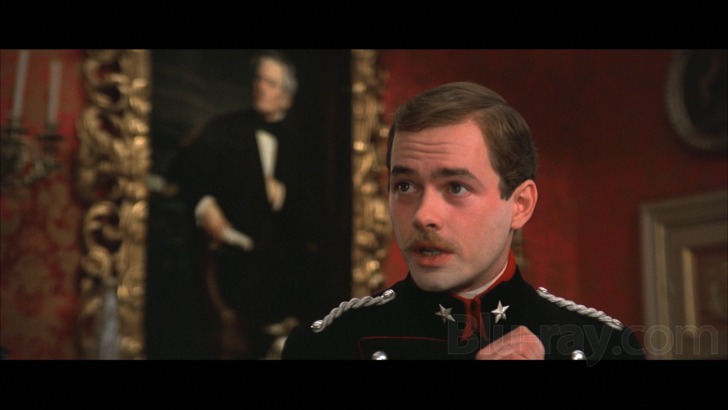
- Reframing L'Innocente (1080p; 12:54) is a visual essay by Ivo Blom, who analyzes aspects of production and costume design among other elements.
- L'Innocente Trailer (1080p; 1:06)
L' Innocente Blu-ray Movie, Overall Score and Recommendation 
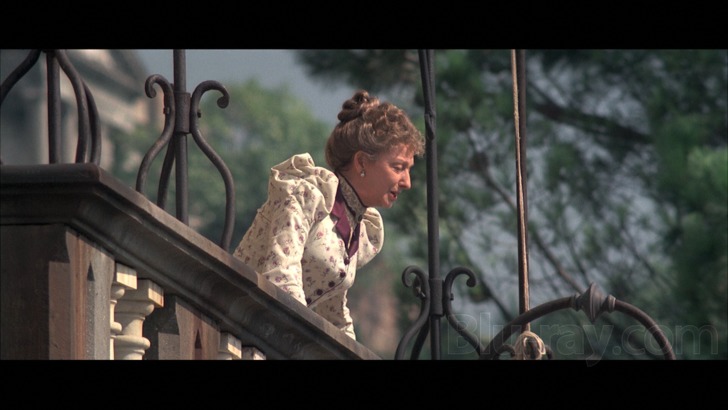
Like any "normal" nineteenth century male aristocrat, Tullio considers himself seemingly genetically consigned to being "in control", and part of L'Innocente's visceral impact is watching how quickly that illusion shatters once Tullio discovers there are several things he can't control, including the women in his life and his own emotions. This is another Visconti effort that is at least somewhat like The Leopard not just in its depiction of a historical milieu, but in the perhaps misleading distance that seems to exist between characters' facades and their inner worlds. Technical merits are generally solid, and L'Innocente comes Highly recommended.
Other editions
The Innocent: Other Editions
Similar titles
Similar titles you might also like
(Still not reliable for this title)

Le Notti Bianche
White Nights
1957

Vagabond
Sans toit ni loi
1985

Eva
1962

La signora senza camelie
1953

Ponette
1996

Custody
Jusqu'à la garde
2017

The Insult
L'insulte
2017

Neon Bull
Boi Neon
2015

A Simple Life
Tao jie
2011

Zama
2017

Loveless
Нелюбовь / Nelyubov
2017

The Life of Oharu
西鶴一代女 / Saikaku ichidai onna
1952

Muriel, or the Time of Return
Muriel ou le temps d'un retour
1963

Lourdes
Slipcover in Original Pressing
2009

Pierrot le fou
1965

24 Frames
2017

Stray Dogs
郊游 / Jiao you
2013

The Magician
Ansiktet
1958

Alps
Alpeis
2011

Together
Tillsammans
2000
